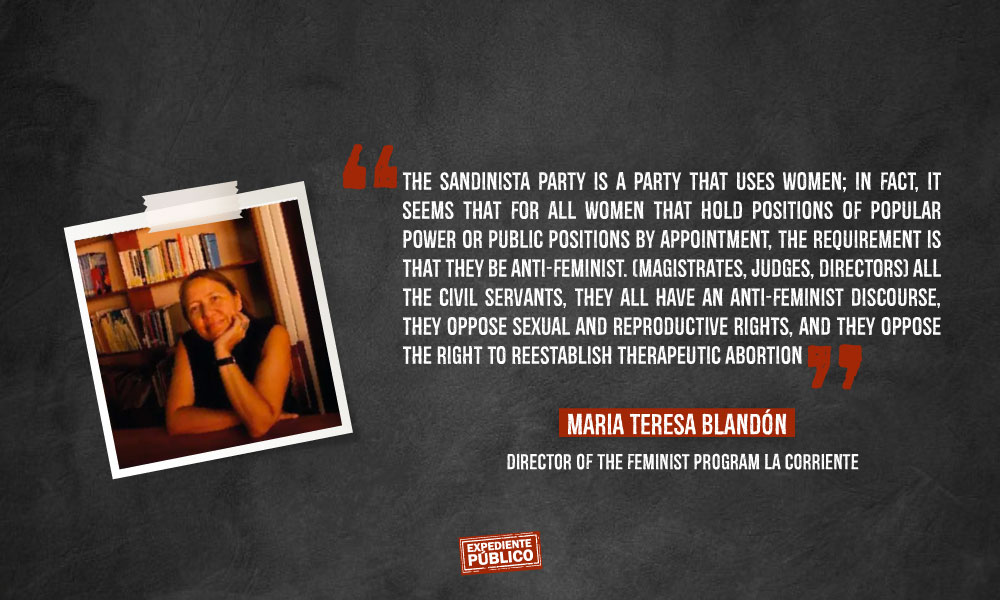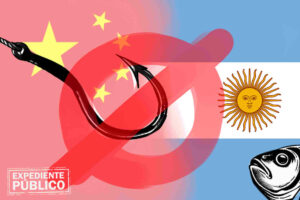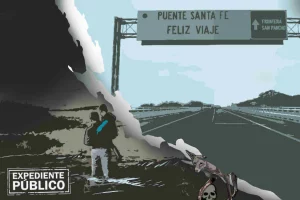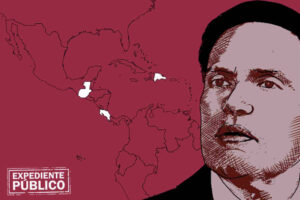As a result of the 2020 Global Gender Gap report elaborated by the World Economic Forum (WEF), the Daniel Ortega and Rosario Murillo regime attempted to extract political benefits inside and outside of the country. The report placed Nicaragua among the top five countries with the greatest parity between men and women globally. However, the true face of the country revealed itself years ago: first, with the abolition of and penalty for therapeutic abortions and, later, impeding the comprehensive implementation of Law 779, which crushed rights for women and girls.
Rosario Murillo, Vice President of Nicaragua and wife to Ortega, announced on December 17, 2019 that Nicaragua was a global leader for gender parity, only falling behind Iceland (1.85 pts), Norway (2.83 pts), Finland (4.82 pts), and Sweden (3.82 pts). On paper, Nicaragua, in fifth place with 5.80 points, achieved a reduction of the gender gap in the political arena.
This report published by the WEF measures four key aspects: health, education, economic participation, and political empowerment. However, the World Economic Forum leaves out the social, political, and economic context, expresses the sociologist and political scientist, Delphine Lacombe of the National Center for Scientific Research in France, who has studied gender issues in Nicaragua.
Lacombe explains that the aforementioned index does not take into consideration the repression and violence exercised against the Nicaraguan population. Above all, she adds that it does not recognize repression exercised against women’s movements, which the Ortega-Murillo regime has intensified since Ortega’s return to power in 2007.
That year, Nicaragua held the 90th position on the list; however, in 2012, when the National Assembly (Parliament) approved the reform of Articles 19 and 24 of Law 40 of Municipalities so that at least 50% of the candidates for mayor and councilor had to be female, the country dropped to 10th place. In 2014, the government made a constitutional reform that ensured this quota in all popularly elected positions.
For the women’s rights activist and feminist, María Teresa Blandón, the fact that more women hold positions of power does not guarantee that these women represent the interests of fellow women.

She was referring to the repeal of therapeutic abortion which had been in place since 1893 and whose repeal was made by the majority of congressmen of the National Assembly, including the Sandinista Front’s bench. The repeal occurred on October 26, 2006, 10 days before that year’s general elections which allowed Daniel Ortega to return to power after he was overwhelmingly defeated in 1990 by Violeta Barrios de Chamorro.
On the other hand, due to orders coming from Murillo, the independence of female ministers and mayors remains in question, as their positions are conditionalized with censorship and dismissal of female government officials. Xochitl Ocampo, María José Corea, Glenda Ramírez, María Chiong, and Carolina Dávila are among those female officials who have been dismissed since 2007.
Blandón considers that inequality has not been properly analyzed, as women are the poorest citizens of Nicaragua, highly affected by exploitation, and part of a vicious cycle of poverty. In this regard, it should be noted that ECLAC confirms this assertion, indicating that in 2018, at the regional level, the unemployment level corresponded to 9.6% for women and 7.1% for men. Moreover, the percentage of women living in poverty reached 30.3% and 11% for women living in extreme poverty.
Sociologist and director of the Movement Against the Current, Blandón participated in the first feminist movements in the 80s and considers that federal violence has been equally exercised against the Opposition, but that the regime has attacked women and women’s movements with greater force because their voices have been constant for decades and have always taken to the streets in the form of social protest.
A historic and shameful setback
For Blandón, the repeal of therapeutic abortion and its subsequent penalty functioned as a card that the Sandinista Front played so as to win approval from the Catholic Church and Evangelical Church in order to return to power.
According to the document, «The Total Prohibition of Abortion in Nicaragua»
published by Amnesty International, on October 6, 2006, leaders of the Catholic Church led a massive march to the National Assembly, calling for the repeal of Article 165 of the Penal Code, which has been in place since 1893 and allowed for therapeutic abortion under the following conditions: that it be scientifically determined, that three doctors participate in the procedure, and that the woman’s spouse or closest relative receive consent for legal purposes.
On October 19, the Justice Commission of the National Assembly ruled in favor of the bill calling for the repeal of Article 165 of the current Penal Code and requested its approval. Later, on October 26, 10 days before Ortega won the general elections with 38% of the vote, Congress passed the bill that had been in place for 113 years by 52 votes in order to repeal historic women’s rights. The president at the time, Enrique Bolaños, who was practically already out of office, endorsed the bill, allowing it to enter into force.
With this vote, Congress ignored the overall clamor throughout the country generated by women’s movements and at the international level, by human rights organizations and United Nations organisms, such as the WHO, UNICEF, PAHO, and IACHR, among others.
According to the document, Nicaragua’s Therapeutic Abortion Apeal: Impact on Health published by the Pan American Health Organization, of the 193 countries that form the United Nations, 188 countries (97%) allow for therapeutic abortion. Meanwhile, only Nicaragua, El Salvador, Chile, Vatican City, and Honduras do not.
«Access to therapeutic abortion is a universally accepted principle that transcends cultural differences, religious creeds, and political ideologies. In most of these countries, the legislators have taken into consideration the human rights framework, however, the undertone of therapeutic apotion is a matter of common sense and humanism,» suggests the PAHO in a public statement following the shameful vote.
The WHO added that miscarriages, ectopic pregnancies, molar pregnancies, and pregnancies associated with cancer are obstetric complications that require the immediate termination of the pregnancy. If not, complications can lead to bleeding or a life-threatening infection.
«Prohibiting the surgical management of these emergency cases would increase the risk of death for pregnant women with previous diseases that are aggravated by pregnancy and for those in which the pregnancy itself represents the risk condition,» said the PAHO.
Subsequently, the Ortega-Murillo regime once again relied upon the legislative branch, reforming the Penal Code and, in Articles 143 and 145, establishing penalties of one to three years and of six months to one year in prison, respectively, for those who provoke an abortion with the woman’s consent and/or «reckless behavior,» respectively.
«The fact that women and girls who become pregnant as a result of rape or incest are now forced to carry their pregnancies to term is a violation of their human rights. The involuntary continuation of the pregnancy causes untold physical and mental suffering to the woman or girl,» said Amnesty International.
To this end, the aforementioned PAHO report refers to 2004, two years before Congress approved the appeal of and penalty for therapeutic abortion and the year that resulted in the death of 81 women as a direct outcome of obstetric complications. Additionally, there were 19 deaths unrelated to obstetric complications, among those being 14 suicides related to unwanted pregnancies of which 70% were adolescents.
According to María Teresa Blandón, the regime allied itself with the most conservative sectors of society in order to achieve legitimacy; its allies included private enterprise and the Evangelical Church. To her point, she recalled the 1,200 legal statuses granted by the government to Catholic and Evangelical churches that contrasted with the government’s persecution of civil society organizations.
Political downfall
In 2006, Dora Zeledón, the National President of the Luisa Amanda Espinoza Association for Nicaraguan Women (AMNLAE), closely tied to the FSLN, criticized the undoing of the legal exception for therapeutic abortion and the exclusion of femicides from the legal framework in the government’s reforms of the Penal Code, reforms that penalized therapeutic abortion.
Murillo, the then coordinator of the Communications and Citizens’ Council, forced Dora Zeledón, the president of the historic Sandinista women’s organization, to resign in 2008, according to media reports.
«Extortion, threats, manipulation, and public shaming used to question and invalidate the working profile of AMNLAE are acts that violate the autonomy, strategic guidelines, and statutes of our organization,» affirms Zeledón in a public letter picked up by the media.
«The extortion and threats that Zeledón refers to are the takeover of the Sacuanjoche Training Center in Bologna and the District V Casa de la Mujer by the Sandinista Women’s Movement led by Isabel Aráuz, the coordinator of AMNLAE Managua,» published El Nuevo Diario.
At the time, the organization had 60 delegations throughout the country.
Murillo created the Sandinista Women’s Movement, which, at one time, would describe the historic AMNLAE as an organization in the service of imperialism. Another parallel organization akin to the government was the Autonomous Blanca Aráuz Movement.
«Ortega and Murillo’s strategy has been to suppress the voices of those who speak out; this strategy of repression has been utilized against female inmates and, since April, Elea Valle (her husband and two youngest children were murdered by the Armed Forces). Additionally, it has been used by the government against female protesters who have sought to shed light upon the crimes, abuses, and arbitrary acts that the regime committed within the community and to the family,» said Támara Dávila, feminist activist and opponent of the regime.
Dávila was arrested in November of 2018 by the government for participating in picket lines in the capital of Managua. The image of a woman dressed in white, arrested by anti-riot police circulated throughout the media at the national and international levels.
Law 779: A historic example to futile justice
Azahálea Solís, lawyer and women’s activist, told the magazine, Envío that Law 779 or the Comprehensive Law against violence against women was promoted by countless women’s organizations and movements. The bill proposing the law was passed by Parliament in 2010; however, in 2011, the judicial branch introduced another bill for a similar law. Through feminist efforts, Parliament eventually combined these two bills and created the first version of the law, which became an iconic feat at the regional level.
In 2012, at the beginning of Ortega’s second consecutive presidential term, Law 779 was approved by the National Assembly. Solís considers that it was approved because the government intended to use the law as an instrument of propaganda of good governance before international organisms.
However, in September of 2013, the National Assembly reformed Law 779, product of pressure coming from public officials of the legislative branch and the Church, introducing a mediation appeal, which, according to feminists, diminished the law’s ability to punish those that exercised violence against women.
According to the reform of Article 46 of Law 779, mediation will be carried out with «less serious crimes», including cases of physical violence if the injuries caused are minor, psychological damage if the injury caused to their psychic integrity requires therapy, patrimonial and economic damages, intimidation or threats made against women, violence at work, etc.
The Public Prosecution Service requires the aforementioned mediation, specifically that it be «appropriate and valid, subject to the victim’s free will and decision to mediate.» The mediation will then be carried out before a judge.
Solís considers that this reform sought to «promote the family unit,» which the Church defended. Moreover, the majority of congressmen who approved the reform were committed to the Church.
15 years ignored: Demanding their land
For 15 years, rural women’s organizations have demanded that governments approve and put into practice Law 717: Creating the Fund for the Purchase of Land with Gender Equity for Rural Women.
The fact that the law has been approved by the State of Nicaragua but that the government does not allocate funds for the project to the General Budget of the Republic constitutes patrimonial and economic damages committed by the Nicaraguan State where Daniel Ortega has led by consecutive rule since 2007, states María Teresa Fernández, representative of the Coordinator of Rural Women (CMR).
«For the State of Nicaragua, these funds are not a priority; the government is not interested in women living in rural areas, nor considers them to be important…Public policies exist, however, they only benefit the big guys,» says Fernández.
Law 717 was finally approved by Congress on May 5, 2010. Since then, women have demanded the corresponding allocation of funds.
«In 2015, from July 15 to October 15, the Office of the President received a letter each day from women representing various organizations and some without land. However, the administration did not respond to a single letter,» says Fernández.
According to Fernández, the rural women of her organization were in favor of Rosario Murillo becoming vice president in 2017. For this reason, they decided to write her letters. These letters never received a response nor were they allowed to enter the Office of the President or Vice President.
These women’s organizations have decided to promote a campaign to raise funds for women’s purchase of land, but have had to face police harassment in their rural communities.
«The State did not comply with constitutional law. Why did the State approve a law if they were not going to allocate a single fund? The law cannot be applied without the allocation of funds. Banco Produzcamos did nothing. Ultimately, the State is not interested in what happens to poor peasant people, representing a total lack of interest in its population. There is no sensitivity for women





